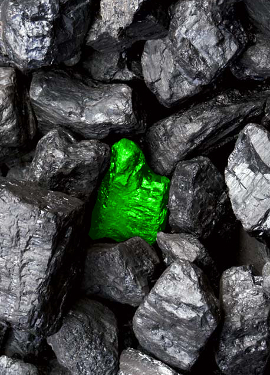Health and business boost worth price on carbon
 Research from the International Monetary Fund (IMF) has shown that carbon pricing and climate action are not just for greenies – they can have real economic benefits as well.
Research from the International Monetary Fund (IMF) has shown that carbon pricing and climate action are not just for greenies – they can have real economic benefits as well.
Beyond the environmental and ideological need not to destroy the planet, the IMF says health improvements and congestion reduction from carbon pricing schemes can add significantly to the bottom lines of many industries.
The findings come from research by IMF staff, but are is not considered an official position of the fund.
The paper, prepared in collaboration with the University of Bologna, says that it is not necessary to wait for everyone to agree as the benefits are available to countries willing go it alone.
“The potential for co-benefits suggests that countries need not wait on internationally coordinated efforts if some carbon mitigation is in their own national interests - that is, the domestic environmental benefits exceed the CO2 mitigation costs, leaving aside climate benefits,” the researchers concluded.
Benefits can be stacked on top of each other, researchers also found, creating gains when revenue generated from carbon pricing is used to cut taxes in other areas, such as on income or company profits.
The study looked at the 20 countries with the highest carbon dioxide emissions, and found the average national benefit would easily justify a carbon price.
“On average these prices are quite high, $57.5 per ton of CO2, suggesting that (most) high-emitting countries need not wait on global coordination to move ahead with carbon pricing programs because the domestic environmental benefits (dominated, in many cases, by reductions in pollution-related deaths) exceed the mitigation costs,” the report observed.
But it is a broad range of countries, each with their own specific influences, governments, energy networks, industries and many other factors.
On one extreme ends of the scale - the “nationally efficient” CO2 price in Saudi Arabia was found to be an incredible $291 per tonne (largely due to fuel subsidies), whereas the report found Brazil actually over-corrects for carbon dioxide pollution by about $23 a tonne.
Australia's nationally efficient CO2 price was found to be about $11.50 a ton – in the bottom four of the 20 nations studied despite being the world's 17th highest carbon dioxide emitter.
The paper, ‘How Much Carbon Pricing is in Countries’ Own Interests? The Critical Role of Co-Benefits’, is available in PDF from, here.







 Print
Print